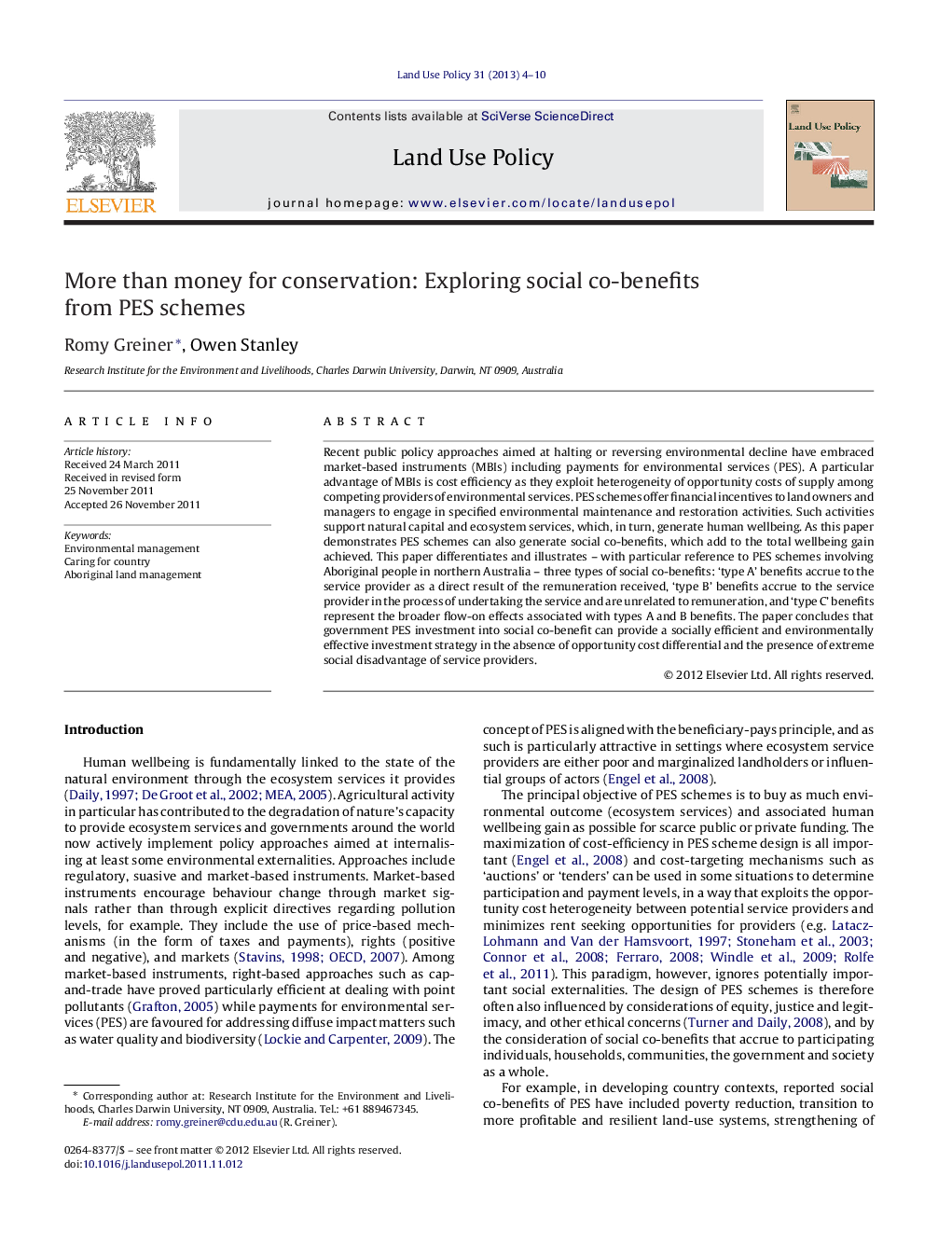| کد مقاله | کد نشریه | سال انتشار | مقاله انگلیسی | نسخه تمام متن |
|---|---|---|---|---|
| 93058 | 160112 | 2013 | 7 صفحه PDF | دانلود رایگان |
Recent public policy approaches aimed at halting or reversing environmental decline have embraced market-based instruments (MBIs) including payments for environmental services (PES). A particular advantage of MBIs is cost efficiency as they exploit heterogeneity of opportunity costs of supply among competing providers of environmental services. PES schemes offer financial incentives to land owners and managers to engage in specified environmental maintenance and restoration activities. Such activities support natural capital and ecosystem services, which, in turn, generate human wellbeing. As this paper demonstrates PES schemes can also generate social co-benefits, which add to the total wellbeing gain achieved. This paper differentiates and illustrates – with particular reference to PES schemes involving Aboriginal people in northern Australia – three types of social co-benefits: ‘type A’ benefits accrue to the service provider as a direct result of the remuneration received, ‘type B’ benefits accrue to the service provider in the process of undertaking the service and are unrelated to remuneration, and ‘type C’ benefits represent the broader flow-on effects associated with types A and B benefits. The paper concludes that government PES investment into social co-benefit can provide a socially efficient and environmentally effective investment strategy in the absence of opportunity cost differential and the presence of extreme social disadvantage of service providers.
► PES schemes can generate social co-benefits.
► In Australia, some government programs are explicitly used to this effect.
► We use empirical evidence to illustrate how benefits accure to service providers (a) as a direct result of remuneration received and (b) in the process of undertaking the service.
► In addition, there are broader flow-on benefits.
Journal: Land Use Policy - Volume 31, March 2013, Pages 4–10
